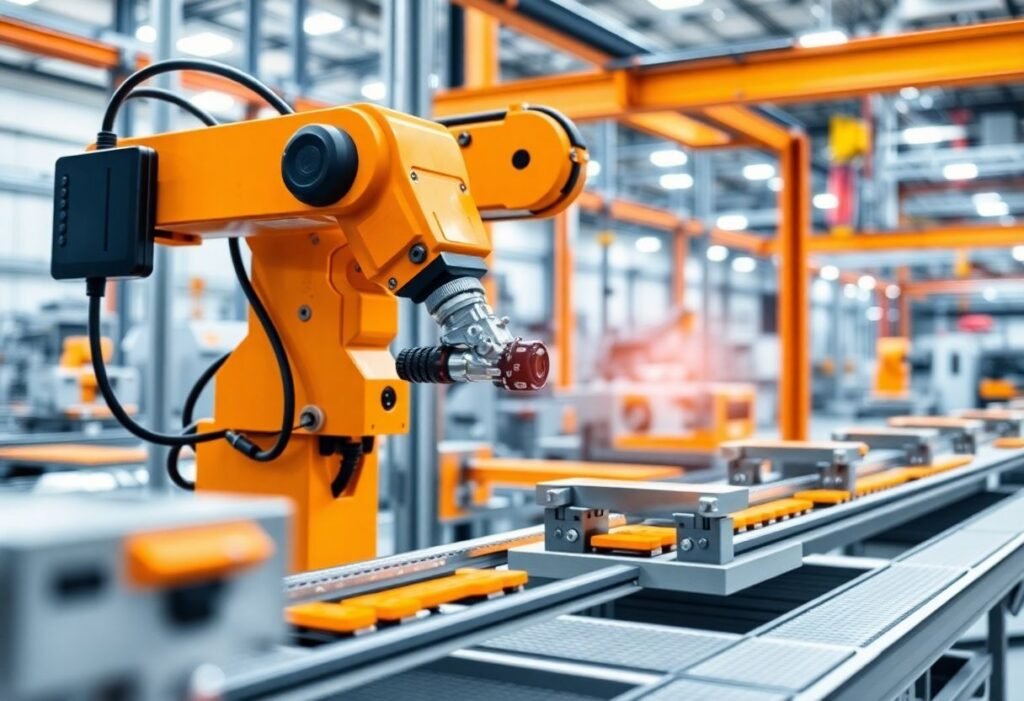Automation is transforming the manufacturing landscape, enhancing flexibility and innovation across industries. By integrating advanced technologies, manufacturers can swiftly adapt to changing market demands while maintaining efficiency and quality.
Enhanced Production Flexibility through Automation
One of the primary benefits of automation in manufacturing is the significant improvement in production flexibility. Automated systems enable manufacturers to quickly reconfigure assembly lines, thus allowing them to switch between different products with ease. This adaptability reduces downtime and leads to faster time-to-market for new products. With automation, companies can meet consumer demand fluctuations and respond to market trends efficiently. For instance, manufacturers can utilize robotics to automate repetitive tasks while reallocating human resources to more strategic operations, driving overall productivity.
Increased Efficiency and Reduced Costs
Another vital aspect of automation is its ability to enhance overall efficiency while simultaneously reducing production costs. Automated processes minimize human error and enhance precision in manufacturing operations, allowing for a consistent output quality. As a result, businesses can reduce waste and save on material costs. Statistics indicate that companies adopting automation technologies have seen up to a 30% increase in operational efficiency, showcasing the transformative power of modern innovation in manufacturing.
Improvement in Quality Control Processes
Automation also plays a crucial role in improving quality control processes within manufacturing environments. Automated systems equipped with advanced sensors and monitoring capabilities can continuously assess product quality, catching defects early in the production cycle. This proactive approach leads to superior product reliability and customer satisfaction. More and more, manufacturers are recognizing that by investing in automation technologies, they are not just enhancing productivity but also ensuring high standards of quality in their outputs.
Data-Driven Decision-Making
Data analytics is a crucial element of manufacturing automation, as it provides real-time insights that help in decision-making. Automated systems generate vast amounts of data that can be analyzed to improve operational strategies and innovation. By utilizing machine learning algorithms, manufacturers can predict maintenance needs and optimize production schedules, thereby reducing unexpected breakdowns and maximizing uptime. This data-driven approach sets a new standard for responsive and intelligent manufacturing.
Meeting Customization Requirements
As consumer preferences become more diverse, the demand for customized products is on the rise. Automation gives manufacturers the flexibility needed to produce tailored solutions without significant slowdowns in production. Technologies such as 3D printing and CNC machining enable bespoke manufacturing on demand. This shift not only meets customer expectations but also creates new market opportunities for manufacturers who can offer unique products that stand out from standard market offerings.
Future Trends and Innovations in Automation
The future of manufacturing leans heavily towards innovations in automation technology. Emerging trends such as autonomous robots and artificial intelligence integration are set to redefine the landscape. The adoption of smart factories, where interconnected devices communicate and optimize workflows on their own, will further enhance production capabilities. Manufacturers who embrace these upcoming trends will not only improve their operational flexibility but also gain a competitive edge in the dynamic market landscape.
Disclaimer: The information provided in this article is intended to enhance understanding of manufacturing automation trends and should not substitute for professional advice. Always consult industry experts for specific guidance.





















